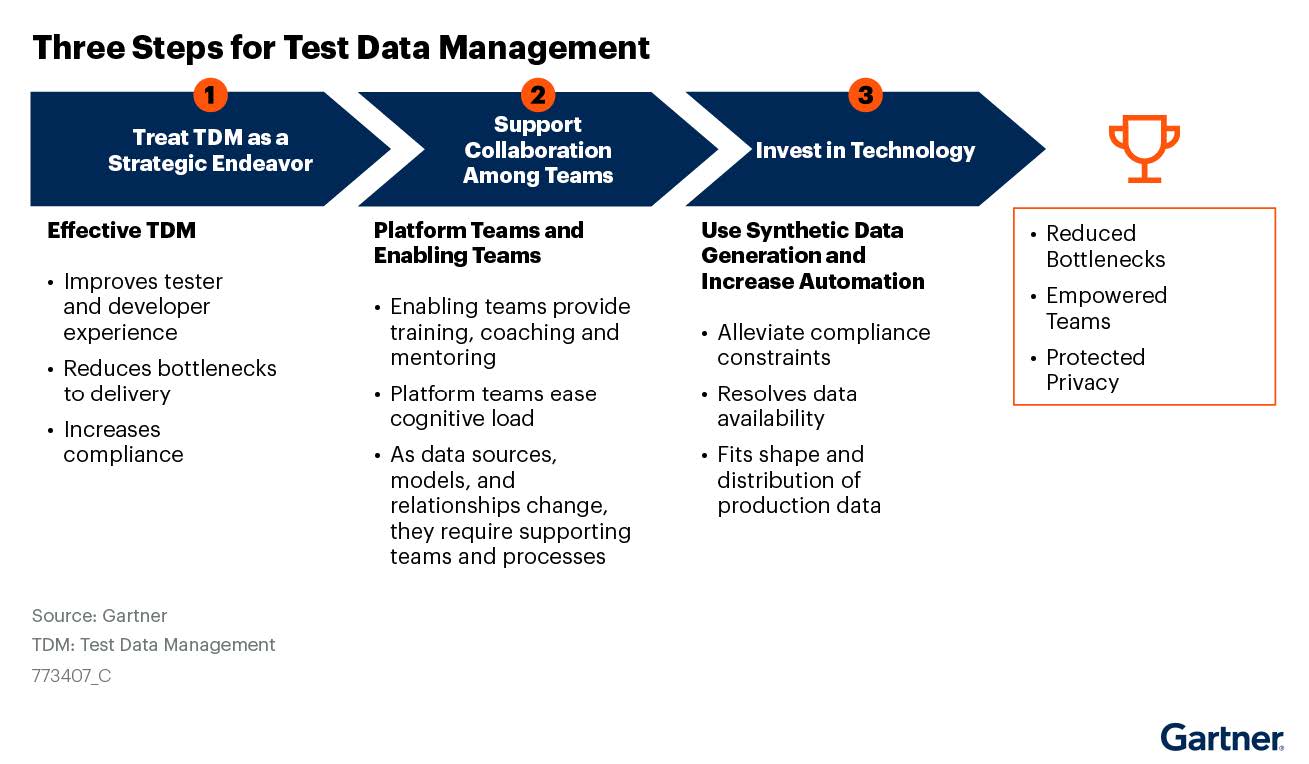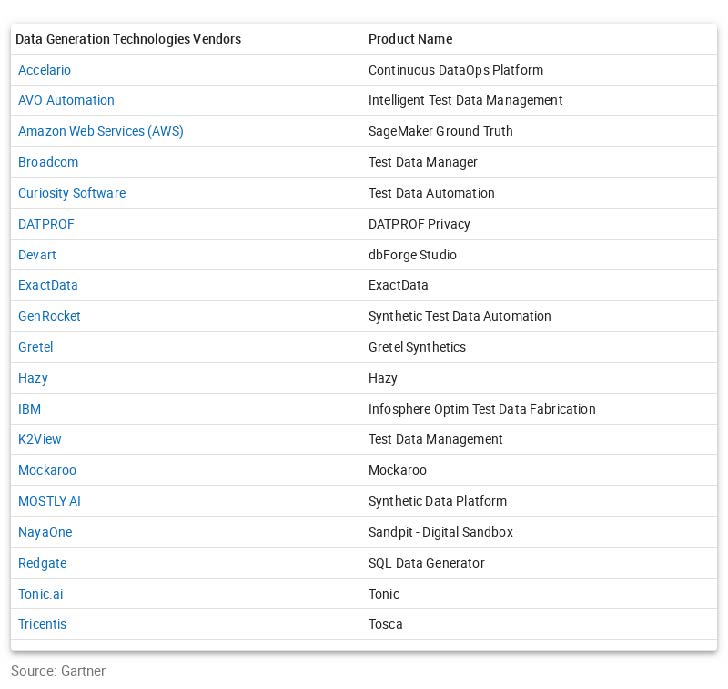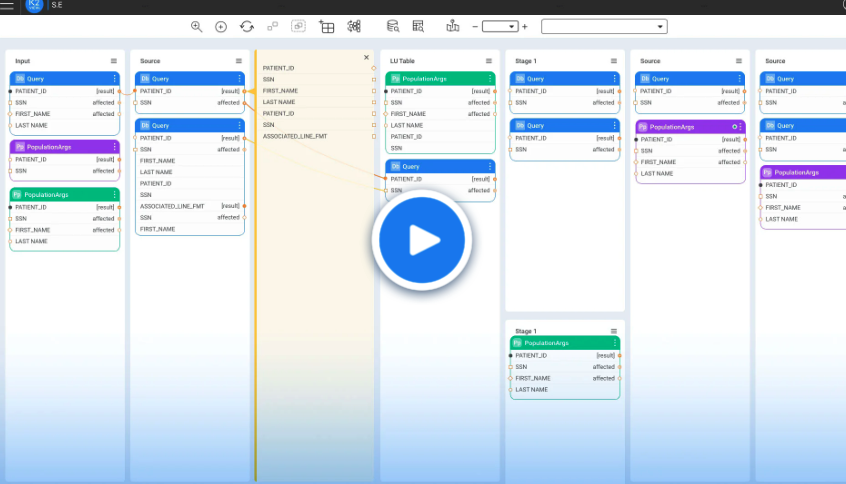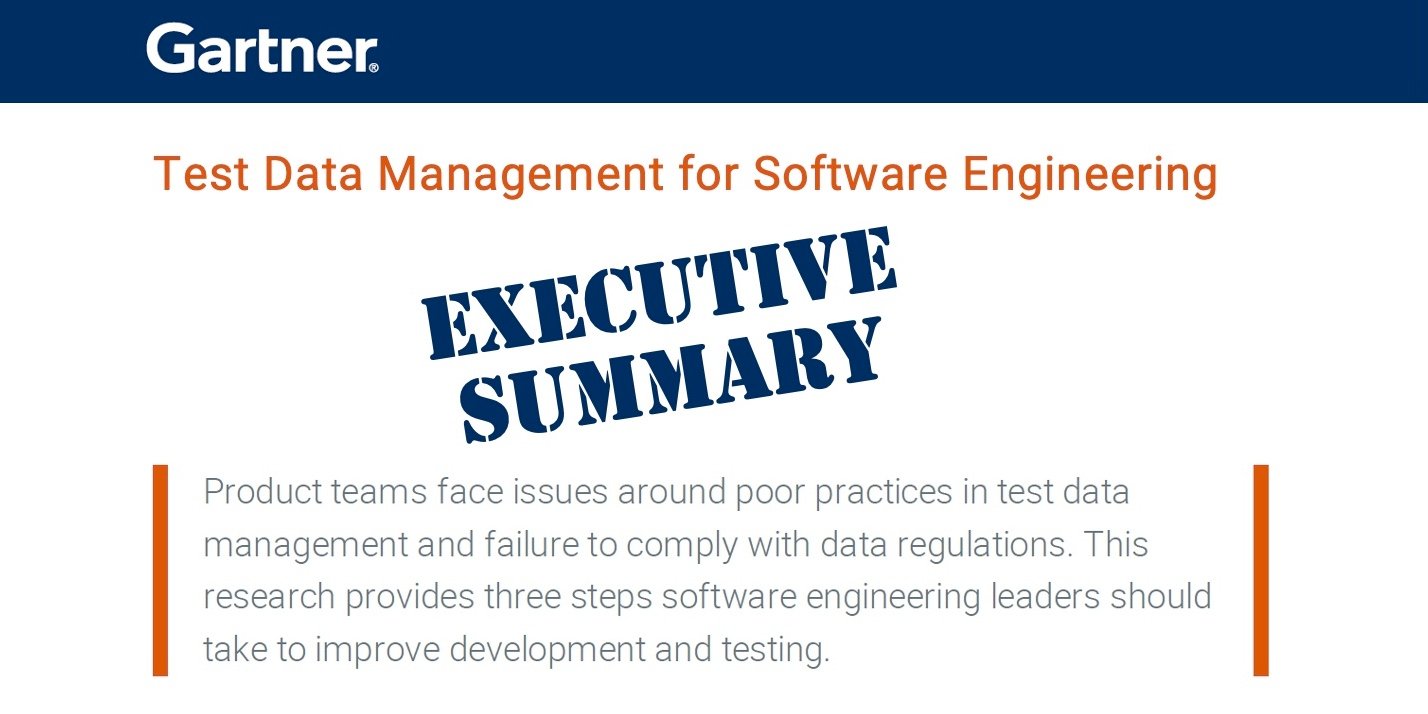Here’s a free executive summary of Gartner’s latest report on Test Data Management (TDM) for Software Engineering.
The TDM World According to Gartner
Gartner research indicates that poor test data management tools and practices, and non-compliance with data regulations, don’t just pose legal and regulatory challenges for organizations, but also reduce the productivity of software engineers and undermine their confidence.
Despite these findings, prioritizing test data management tools remains a challenge for software leaders, because product teams are already overwhelmed with their main tasks, namely designing new features, and integrating technologies. What’s more, without the right tools in place, organizations often use real production data in testing environments – which runs the risk of non-compliance with data privacy laws.
Among other valuable insights on test data management tools, Gartner researchers suggest 3 ways that software engineers could improve test data management. In this summary, we’ll drill down into the suggestions and how to put them into practice.
Get the full Gartner report.
Treat Test Data Management as a Strategic Endeavor
Test data management has strategic value. Why? Because inefficient test data management tools and practices are major roadblocks to software development and overall productivity – and should be treated as such.
Development teams rely on test data to alert them to potential risks and to build trust in the quality of the product they’re building. When testing environments and test data are unreliable, they lose confidence in the app they’re developing.
To overcome these challenges, it's essential for developers and testers to recognize the strategic importance of providing reliable test data. Towards this end, the right test data management tools are key.
Encourage Cross-Team, Continuous Collaboration
Hiring, nurturing, and retaining software engineers are among the greatest challenges faced by IT today. On the flip side, software engineers are looking for a positive work experience and a pleasant work environment.
So, better test data management tools and practices aren’t just about compliance. They’re also about creating an environment that attracts top talent.
Effective tools and practices not only make it easier to recruit and retain new engineers, but they also enhance the tester experience by making complete and compliant test data accessible in minutes (instead of days and weeks).
In software development, products, codes, and data models are constantly evolving. This necessitates an ongoing approach to test data management. Rather than treating test data management as a one-off project, software engineering teams should integrate test data management tools into continuous testing and software development processes.
But this can’t happen by itself. Product, enablement, and platform teams must also be involved. A collaborative approach ensures that all teams understand the needs of developers and testers alike.
For example, enablement teams can offer direct responses to specific bottlenecks through coaching and engineering activities to help product teams address immediate testing challenges. Platform teams can provide support for software quality and testing tools that benefit distributed testers.
With a continuous approach to test data management, and close collaboration between all teams, organizations can better navigate the ever-changing landscape of software development and testing.
Emphasize Technology and Automation
Provisioning test data from production sources can be risky. Production datasets are often large, leading to increased development and testing costs and time requirements. And access to production datasets is often limited due to security controls and permissions, leading to unnecessary delays for testing teams.
Additionally, biases within production data can limit how effectively it represents real-world experiences, and real data may lack the characteristics required to develop new application features or train Machine Learning (ML) models. More importantly, actual data frequently contains PII which must be masked.
To meet these challenges, testing organizations need to augment production data with synthetic data created through generative AI synthetic data techniques, rules-based logic, and cloning. Synthetic data provides developers and testers with the relevant data in a timely fashion and at scale, while reducing the need to access and mask production data.
Synthetic data generation results in fewer biases, greater scalability, and quicker iterations. It also reduces reliance on production data and enhances testing agility.
The Bottom Line
The Gartner analysts concluded that by adopting a test data management strategy – implemented via strategic test data management tools – enterprises would benefit from fewer bottlenecks and ensure greater success of their software development efforts.
Investing in test data management tools should be an ongoing effort, rather than a one-time task. This means constantly improving test data management processes to adapt to evolving compliance requirements and technologies.
Finally, to avoid the risks of using real data in testing, Gartner recommends that organizations should augment their masked production data with synthetic data generation solutions. Synthetic data provides a secure and efficient alternative to actual data, reducing the risk of exposing PII while still allowing comprehensive testing.
The report listed the following data generation technology vendors in alphabetical order. Note that most of the vendors listed below are NOT in Gartner’s Magic Quadrant.

Entity-Based Test Data Management Tools
Enterprises with complex data environments are shifting to an entity-based test data management approach to create accessible and compliant test data, more easily. Recognized as a Visionary in Gartner’s Magic Quadrant for 2023, K2view provisions test data via business entities – such as customers, orders, or products. This unique method accelerates software delivery, maximizes test coverage, and increases tester productivity.
Learn more about K2view Test Data Management software.















